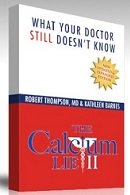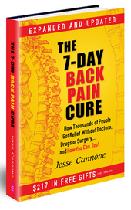Why You Should Never Take Antacids Again
Suffering the pain of heartburn? Are you looking for a better solution than taking antacids or other heartburn-control drugs? Well there is a better, natural solution with the side effects of better health.
What are Heartburn Medications?
The side effects and risks - are they even worth the benefits you get? These are a group of medications that act in different ways to reduce acidity in the stomach in an attempt to control the symptoms of heartburn, acid indigestion, upset or sour stomach. Do these heartburn medications actually work? Of course, they relieve the symptoms but in the long-term are they solving the problem so that you don't have it any more or are they just making the problem worse? Many have undesirable side effects and they simply don't work to solve the problem or you wouldn't have to keep taking them.
Examples of Heartburn Medications
Here are some of the commonly-prescribed "remedies" for the symptoms of heart-burn:
- Aluminium hydroxide (Amphojel, AlternaGEL)
- Magnesium hydroxide (Phillips' Milk of Magnesia)
- Aluminum hydroxide with magnesium hydroxide (Maalox, Mylanta)
- Aluminum carbonate gel (Basaljel)
- Calcium carbonate (Alcalak, TUMS, Quick-Eze, Rennie, Titralac, Rolaids)
- Sodium bicarbonate (Bicarbonate of soda, Alka-Seltzer)
- Hydrotalcite (Mg6Al2(CO3)(OH)16 . 4(H2O); Talcid)
- Bismuth subsalicylate (Pepto-Bismol)
- Magaldrate with Simethicone (Pepsil)
(Brand names may vary by country)
How do Heartburn Medications Work?
Antacids are highly alkaline and simply neutralize the acid in your stomach. They are fast acting. There are two modes of action in different types of antacids:
- chemical preparations (eg. sodium bicarbonate) that neutralize gastric acid
- adsorption (calcium and magnesium salts) work by adsorbing the acid
H2 blockers reduce the amount of acid your stomach makes. They provide slower but more long-term relief of symptoms.
Proton pump inhibitors stop your body's production of acid. They require one to four days to work.
All of these solutions work in some way to reduce stomach acid. While they seem to work in that you get relief of symptoms, you should be aware that there are serious problems with regular use of antacids and related drugs.
"Antacids, drugs which so many people take frequently, are so dangerous that they would have been removed from the market if the drug cartels were not so strong. It has been known for decades that they deplete the bones of between 130 and 300 mg of calcium each time they are consumed. They contain aluminum, and also contribute to Alzheimer's disease." (From the professional journal Orthopaedic Surgeon)
Let's see why they are so dangerous. First of all, there are the many possible side effects.
Heartburn Drug Side Effects
- Acid rebound (from chemical antacids) in which the gastric acid and symptoms return and are increased after the drug effect wears off.
- alkalosis, in people with kidney problems
- bioavailability of other drug medications may be affected
- chalky taste
- constipation, mostly from products containing aluminum or calcium
- diarrhea, mostly from products containing magnesium
- dizziness
- esophageal cancer
- flatulence
- gastric distension, carbonate and hydrochloric acid produce carbon dioxide gas
- headache
- hypermagnesemia, with cardiovascular and neurological complications, in people with renal failure
- hypertension, heart failure and renal diseases may be affected by increased sodium
- hypophosphatemia and osteomalacia from aluminum hydroxide
- kidney stones (calcium-based antacids)
- nausea
- stomach cramps
- stools can turn dark from Bismuth subsalicylate
- stools whitish or speckled
- thirst
- tongue can turn dark from Bismuth subsalicylate
Other Precautions
Antacids should be avoided if any signs of appendicitis or inflamed bowel are present. These include cramping, pain, and soreness in the lower abdomen, bloating, and nausea and vomiting.
Avoid products containing sodium bicarbonate when the stomach is uncomfortably full from eating or drinking.
Do not give heartburn medications to children under six years of age.
Don't take bismuth subsalicylate if you've ever had an allergy to aspirin or any product that contains salicylates.
Don't give bismuth subsalicylate to children who might have flu or chickenpox as there will be a higher risk of Reye's Syndrome.
Pregnant women who are consuming extra calcium should be aware that using antacids that contain sodium bicarbonate or calcium can lead to serious side effects.
While information may state that there is no evidence that the ingestion of antacids by infants through breast milk causes them any problems, they are hardly natural and cannot be good for babies.
Reduced stomach acidity may reduce ability to digest and absorb certain nutrients, such as iron and the B vitamins.
Since stomach acid normally kills ingested bacteria, reducing stomach acidity increases the chances of infection.
Don't use products that contain sodium bicarbonate or aluminum hydroxide and magnesium carbonate if you're on a low-salt diet.
Don't take magnesium hydroxide if you're following a magnesium-restricted diet.
If you have kidney disease, you shouldn't use products containing calcium carbonate or aluminum hydroxide and magnesium carbonate.
To All of the Above, Add Broken Bones
A large new Canadian study (Canadian Medical Association Journal, August, 2008) found that proton pump inhibitors increased the risk of fractured hips and bones by 4.5 times after seven or more years of continuous exposure,
These drugs, which include Losec, Prevacid, Nexium, Pantoloc and Pariet, are the most potent acid-suppressing drugs on the market. They are also among the most heavily promoted.
Proton pump inhibitors (PPIs) decrease stomach acid. The problem is, stomach acid helps the body absorb calcium from food. That means suppressing stomach acid might speed up bone loss. Other antacid products would have the same effect.
So What Can I Do?
The reason the popular remedies sell so well is that they produce fast symptom relief and, of course, are heavily advertised. Perhaps you are concerned about using artificial drugs and would like to find a more natural pain relief method. Now that you know of the many problems they can cause, you might want to learn of real some
heartburn cures.
Also, you should read
the role of stomach acid
to understand why stomach acid is actually very good for you.
|
Keep up to date with
valuable insights into
pain management via
a healthy lifestyle.
Receive the monthly
Natural Pain Relief
Guide Newsletter.
News articles, health
tips, specials, freebies.
Enter your email and name
in the form to the right.
|
|
|








New! Comments
Have your say about what you just read! Leave me a comment in the box below.